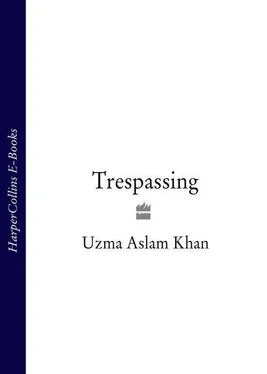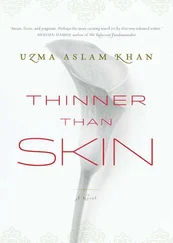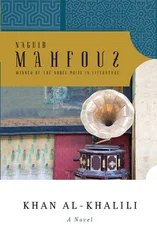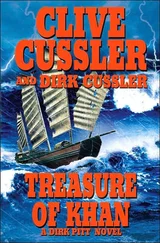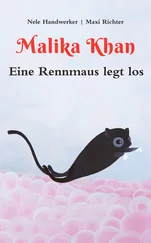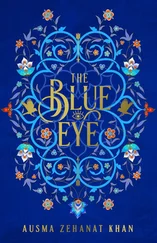When he saw the man time did freeze. ‘Oh God.’
‘Are you going to shoot him now?’ he heard Fatah say. The voice was hollow, lifeless. It drifted far into the dusty haze.
Mr Mansoor gaped out from the car. Glass studded his fat cheeks as though he’d made a mess of a meal. A wound in his flabby arm bled like a faucet. He wheezed, trying to contain the bleeding with the other hand. Blood oozed out from between the pudgy fingers. It turned into a cricket ball and the wounded arm became his daughter Dia. She was running toward him from the top of a hill, in a yellow dress. Barely thirteen. Flushed, leaping with joy. ‘Out!’ she screamed, and her brother at the bottom of the hill in front of their house threw down his bat and sulked into their twelve-foot-tall gate. But her father the umpire waited to embrace her. He judged it a fair ball: her brother was out.
Salaamat’s hand shook as he tried to hold the gun to Mr Mansoor’s temple. Over his shoulder he said to Fatah, ‘Look at the car. Let’s take it and leave him.’
A barrel stabbed his spine. ‘Shoot. Next time I won’t say it, I’ll do it. To you.’
Salaamat pulled the trigger but aimed a few inches down, and to his right. Another red ball exploded, this time above the left knee. Mr Mansoor screamed. His free hand came away from the wounded arm and squeezed the fresh wound.
‘Bad shot,’ said Gharyaal Bhai. ‘Not like you.’ He stuck his hand into the window and grabbed the wounded arm. Then he snapped the right thumb loose. ‘You’re going to do the left one. Today. Now. To hell with the cuffs.’
Between deafening screams, Mr Mansoor pleaded with Salaamat, ‘Tell them to stop. Help me.’
Had he recognized him then?
Salaamat did not want the men to know he knew him. Fatah was too unpredictable. If he learned the man was his family’s employer, he might do anything. They’d pass the farm again on the way back. Maybe he’d want to stop there.
‘Shut up!’ Salaamat waved his gun in the diamond-raked face. He held Mr Mansoor’s left fingers with one hand, caught his elbow with the other. It was like the first time he’d jumped in the sea: he had to do it quickly, without thinking. He caught the thumb and pulled it forward, in one swift motion, like he’d seen men rev the motor of a scooter. He heard the bone crack. Mr Mansoor put his forehead on the steering wheel and began to sob.
Yawar settled in the backseat with Gharyaal Bhai. ‘Let’s take him to the Chief.’
Gharyaal Bhai nodded. ‘But first we stop at Thatta, for rewri.’
Salaamat got in with them. The others followed in the jeep.
Yawar punched the back of Mr Mansoor’s head and hissed, ‘Drive.’
A hand with a slack thumb started the engine and tried to steer. All eight fingers were used to change gears. The wound in the knee bled lavishly. He swallowed hiccups. In the rear-view mirror, Salaamat saw his eyes still stream with tears. Then they met his own.
Why did dying men and burning buses always look at him?
The lips trembled but Mr Mansoor uttered nothing more. Perhaps, as his wounds bled and his mind shrank, he didn’t even know Salaamat any more. Maybe, when he’d asked for help, he hadn’t recognized him. Or maybe he chose not to reveal that they knew each other. Possibly, he was thinking the same: the farm was coming up, and his wife and children might be arriving soon. Perhaps, to look for him.
Salaamat thought now of the Muhajir student who’d crossed the street at the wrong time on the wrong day. If only there’d been a sign: Trespassers will be prosecuted. He said to those small wet eyes in the mirror: Why here, when there were so many other places you could be?
But Mr Mansoor never spoke again. Not when the men stopped for rewri, and spooned some into his quivering lips. And not when he was taken to the cell from which a corpse was taken out.
AUGUST 1992
They sat under the same tree where he’d given her the earrings. The leaves were turning crisp. Sumbul said Riffat Mansoor’s farm was in the throes of a water crisis.
‘The level in the wells has risen but it needs to rain much more,’ she explained. ‘Poor Bibi. She says when it rains life stops. But when it doesn’t, the spirit just shrivels up and dies, slowly, slowly, curling with exhaustion.’
After a pause, she added that for the first time in all the years Riffat had devoted to the farm, she was beginning to wonder if it had been a mistake. It had taken so much of her life. Perhaps she should have stuck to imported threads and dyes. ‘I told her, “No, Bibi. You made your dream come true, how can you say it hasn’t been worth it?” She looked so frail, suddenly, and even a little old. She said, lately, she’d begun missing her husband dreadfully again. It would have been nice to simply grow old with him.’
Salaamat played with a strand of Sumbul’s hair. He hadn’t told her what happened on the highway. He hadn’t told a soul. But he’d shared what was heard in the governor’s tomb, after leaving her with the earrings years ago. He knew it was about this she wanted to speak.
She’d sold the earrings soon after her third child was born. Now in her lap nestled a fourth, brittle-boned, unable to retain food. The child was shriveling; dehydrated as the land they lived on. Yet Sumbul refused to accept it. Even with a fifth child in her womb, the fourth evoked as much love in her as the first. She offered him milk. Her breast sagged like a stuffed sock: stout at the bottom, flat at the top. Nipples still Fanta-cap sized but ragged now. She was just twenty: his age that day on the highway.
The boy rejected the milk. Sumbul buttoned her shirt up. Salaamat kissed the child’s feverish forehead. He said, ‘Why do you care so much about your Bibi’s troubles?’
She rocked the child, desperate to get a reaction from him. His thighs, slender as her wrists, bent closer to a tiny, sunken chest. He was moving backwards in time, back to the little foetus in her womb, back to the egg that swam free. Her eyes welled with tears but she blinked them back impatiently before answering him. ‘Bibi has been like a mother to me. She too has suffered great losses.’
Salaamat rolled on to his back in the dirt, gazing up at the top of the thirsty tree. ‘How touching. Aba has been like a father to Bibi’s daughter Dia, and Bibi has been like a mother to you.’
Sumbul turned her head away, whispering, ‘Be gentle with me today.’
He quickly repented. Taking her free hand in his, he asked for forgiveness.
But when she turned to look at him again he saw the shine in her eyes. ‘What do you know about being like a parent, when you won’t accept your real father? You haven’t even returned to our village once since Ama died. Dadi wants nothing more than to see you again before she dies too.’
‘She sent me away.’
‘She had to! We’re much better off now. What would we be doing over there? Serving tea to the jobless for the rest of our lives? There’s no fishing for the men any more. You would have felt as useless as Aba did before we finally left.’
He raised his hands, drawing a partition between them. ‘I would never have become like him.’
‘Pah! You men are all the same. Pining about the past while we think of what’s to come.’ She looked down at the child again.
He pursed his lips, holding back anger. He knew she knew that by leaving everything he’d once had, he was left with nothing besides her. Sumbul was mother, father, and home. He was terrified of invoking her wrath. What if she stopped loving him? The wench: his fear allowed her to manipulate him.
‘You ask why I care about Bibi,’ she continued. ‘Do you know the day after her husband was found, she got straight out of bed and came to the farm? Yes. She didn’t lick her wounds. She didn’t cry to the world. And because of that, the world has done nothing but speak ill of her.’
Читать дальше
Конец ознакомительного отрывка
Купить книгу
